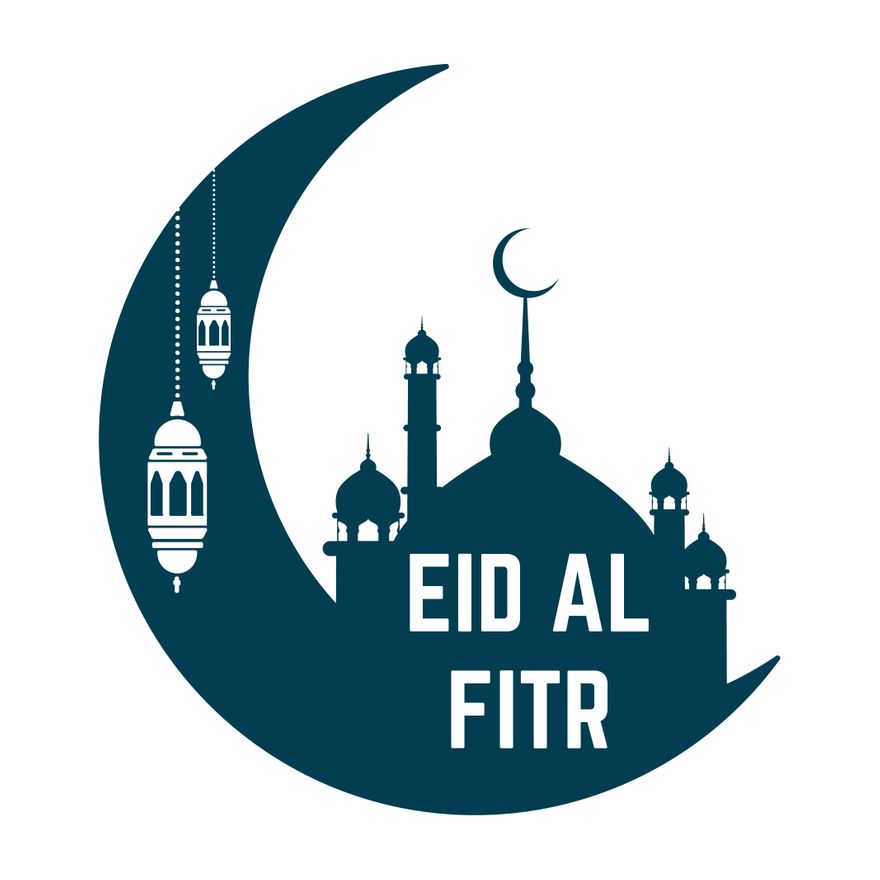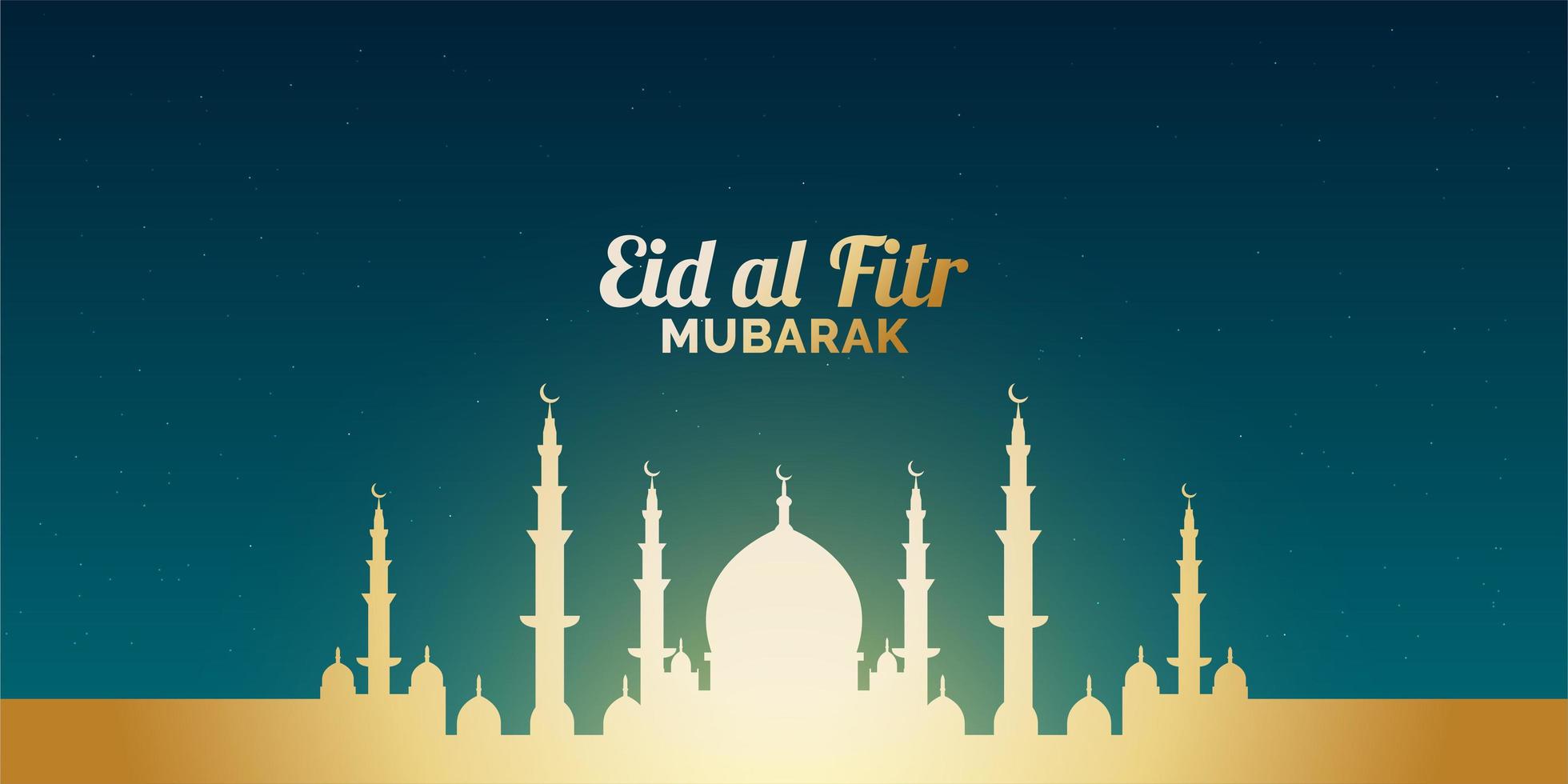Eid ul-Fitr 2025 is just around the corner, and millions of Muslims worldwide are already buzzing with excitement. As one of the most anticipated celebrations in the Islamic calendar, Eid ul-Fitr marks the end of Ramadan, a month of fasting, reflection, and spiritual growth. Whether you're planning to spend time with family, friends, or loved ones, this festival promises to be a time of joy, gratitude, and connection.
As we look forward to Eid ul-Fitr 2025, it's essential to understand the significance of this celebration. It’s not just about feasting and festivities; it's also about embracing the values of compassion, generosity, and unity that Ramadan instills in us. This year, let’s make it a point to celebrate Eid in a way that truly reflects the essence of the holy month.
From traditional practices to modern twists, there's so much to explore when it comes to celebrating Eid ul-Fitr. Whether you're a seasoned participant or new to the festivities, this article will guide you through everything you need to know about Eid ul-Fitr 2025. So, buckle up and get ready to dive into the spirit of this beautiful occasion!
Read also:Understanding The Ripple Xrp Lawsuit A Comprehensive Analysis
Table of Contents
- The History of Eid ul-Fitr
- When is Eid ul-Fitr 2025?
- Eid ul-Fitr Traditions Around the World
- Preparations for Eid ul-Fitr 2025
- Delicious Foods to Enjoy on Eid ul-Fitr
- Eid Gifts and Their Importance
- Zakat al-Fitr: The Spirit of Charity
- Eid ul-Fitr Prayers and Their Significance
- Modern Celebrations of Eid ul-Fitr
- Tips for a Memorable Eid ul-Fitr 2025
The History of Eid ul-Fitr
Eid ul-Fitr has a rich history that dates back to the time of Prophet Muhammad (peace be upon him). The first Eid ul-Fitr was celebrated in Medina after the migration of Muslims from Mecca. This festival was introduced as a way to express gratitude and celebrate the completion of Ramadan. Over the years, the traditions and customs associated with Eid ul-Fitr have evolved, but the core values remain the same.
Origins and Significance
The word "Eid" itself means "festivity" or "feast," and "Fitr" refers to breaking the fast. Together, they symbolize the joy and celebration that come after a month of self-discipline and devotion. Eid ul-Fitr is not just a day of feasting; it’s a time for spiritual reflection, reconnecting with loved ones, and giving back to the community.
For many Muslims, Eid ul-Fitr is a reminder of the blessings they have received during Ramadan. It’s a time to express gratitude to Allah and to share that joy with others, especially those in need.
When is Eid ul-Fitr 2025?
Mark your calendars because Eid ul-Fitr 2025 is expected to fall on March 22nd, depending on the sighting of the moon. The exact date may vary slightly depending on the lunar calendar and local moon sightings. It’s always a good idea to check with your local mosque or community leaders for the official announcement.
Read also:Brian Peck Josh Peck
Why Does the Date Change Each Year?
Eid ul-Fitr follows the Islamic lunar calendar, which is about 11 days shorter than the Gregorian calendar. This is why the date of Eid changes every year, moving approximately 11 days earlier each time. The anticipation of waiting for the moon to be sighted adds to the excitement and mystery of the celebration.
For many families, planning for Eid begins weeks in advance. From shopping for new clothes to preparing traditional dishes, there’s a lot to do to make the day special. So, if you haven’t started preparing yet, now’s the time to get moving!
Eid ul-Fitr Traditions Around the World
Eid ul-Fitr is celebrated in diverse ways across the globe, reflecting the rich cultural heritage of Muslim communities worldwide. From elaborate feasts to vibrant parades, each region has its own unique way of marking this special occasion.
How Different Countries Celebrate Eid
- In Indonesia, Eid is known as "Lebaran," and families often return to their hometowns for a big reunion. Traditional dishes like ketupat and opor ayam are served, and people wear colorful batik outfits.
- In Turkey, Eid ul-Fitr is called "Ramazan Bayramı" and is celebrated with family gatherings, sweet treats like baklava, and visits to the graves of loved ones.
- In Pakistan, Eid is a grand affair with elaborate decorations, special prayers, and the exchange of gifts. Children receive "Eidi," which is money given by elders as a token of love.
No matter where you are in the world, the spirit of Eid ul-Fitr remains the same—a celebration of togetherness, gratitude, and kindness.
Preparations for Eid ul-Fitr 2025
Preparing for Eid ul-Fitr is almost as exciting as the celebration itself. From cleaning the house to buying new clothes, there’s a lot to do to make the day special. Here’s a quick checklist to help you get ready:
- Clean the House: Start by tidying up your home. This not only makes it look inviting but also symbolizes a fresh start.
- Buy New Clothes: Wearing new clothes is a tradition on Eid. Whether it’s a traditional outfit or something modern, make sure you look your best.
- Prepare Traditional Dishes: Get your recipes ready and start cooking. Traditional sweets and savory dishes are a must-have for any Eid feast.
Remember, the key to a successful Eid celebration is planning ahead. The more you prepare, the more you can enjoy the day with your loved ones.
Delicious Foods to Enjoy on Eid ul-Fitr
No Eid celebration is complete without a delicious spread of food. From sweet desserts to savory dishes, the table is usually laden with a variety of traditional recipes. Here are some must-try foods for Eid ul-Fitr:
Popular Eid Dishes
- Samosas: These crispy, fried pastries filled with spiced potatoes and peas are a favorite appetizer.
- Biryani: A flavorful rice dish cooked with meat, spices, and herbs, biryani is a staple in many Eid feasts.
- Sweet Vermicelli (Seviyan): Made with milk, sugar, and nuts, this dessert is a must-have during Eid celebrations.
Don’t forget to include your family’s favorite recipes in the mix. Whether it’s a traditional dish passed down through generations or a modern twist on a classic, the food should reflect the joy and warmth of the occasion.
Eid Gifts and Their Importance
Giving gifts is an integral part of Eid ul-Fitr celebrations. It’s a way to express love and appreciation for family and friends. While the gifts themselves vary, the sentiment behind them remains the same—a gesture of kindness and goodwill.
What to Gift on Eid?
- Money (Eidi): Especially popular for children, Eidi is a small sum of money given by elders as a token of love.
- Books: For the book lovers in your life, gifting a meaningful book can be a thoughtful gesture.
- Personalized Gifts: Custom-made items like jewelry, clothing, or accessories can make the gift even more special.
Whatever you choose to give, remember that the thought and effort behind the gift are what truly matter. It’s about spreading joy and making someone’s day a little brighter.
Zakat al-Fitr: The Spirit of Charity
One of the most important aspects of Eid ul-Fitr is Zakat al-Fitr, a form of charity given to the less fortunate. This act of generosity ensures that everyone can celebrate Eid with dignity and joy. Zakat al-Fitr is obligatory for all Muslims and must be paid before the Eid prayers.
Who Should Pay Zakat al-Fitr?
Zakat al-Fitr is required from every Muslim, regardless of age or financial status. It’s usually calculated based on the cost of essential food items like wheat, barley, or dates. The amount is then distributed to those in need, ensuring that they too can enjoy the festivities.
This practice not only helps those in need but also fosters a sense of community and shared responsibility. It’s a reminder that even in our celebrations, we must think of others and extend a helping hand.
Eid ul-Fitr Prayers and Their Significance
Eid ul-Fitr prayers are an integral part of the celebration. These special prayers, known as "Salat al-Eid," are performed in congregation and are followed by a sermon (khutbah). Attending these prayers is a way to connect with the community and express gratitude to Allah.
How to Perform Eid Prayers?
The Eid prayers consist of two rakats (units of prayer) and are accompanied by additional takbirs (glorifications of Allah). It’s customary to wear clean, new clothes and perform a ghusl (ritual bath) before heading to the mosque. After the prayers, people often greet each other with the phrase "Eid Mubarak," which means "Blessed Eid."
For those unable to attend the prayers in person, many mosques offer live streams or recordings, making it possible to participate from anywhere in the world.
Modern Celebrations of Eid ul-Fitr
As the world becomes more connected, modern technology has found its way into Eid ul-Fitr celebrations. From virtual gatherings to online shopping for Eid outfits, technology has made it easier than ever to celebrate this special occasion.
How Technology is Changing Eid Celebrations
- Virtual Reunions: With video conferencing tools, families can connect even if they’re miles apart.
- Online Shopping: Platforms offering Eid-themed products make it convenient to find everything you need without leaving home.
- Social Media Sharing: Sharing photos and videos of your Eid celebrations on social media has become a popular trend.
While technology adds convenience, it’s important to remember the essence of Eid—spending quality time with loved ones and giving back to the community.
Tips for a Memorable Eid ul-Fitr 2025
With all the excitement surrounding Eid ul-Fitr 2025, here are a few tips to help you make the most of this special day:
- Plan Ahead: Start your preparations early to avoid last-minute stress.
- Stay Connected: Reach out to family and friends, even if you can’t be together physically.
- Give Back: Don’t forget to contribute to Zakat al-Fitr and other charitable causes.
Eid ul-Fitr is not just about celebrating the end of Ramadan; it’s about embracing the values of compassion, generosity, and unity that the holy month instills in us. Let’s make this Eid a time to reflect, reconnect, and give back.
Conclusion
Eid ul-Fitr 2025 promises to be a celebration filled with joy, gratitude, and togetherness. From understanding its rich history to preparing for the festivities, there’s so much to look forward to. Whether you’re enjoying traditional foods, exchanging gifts, or participating in charitable acts, remember that the essence of Eid lies in its spiritual and communal values.
As we approach this beautiful occasion, let’s make a conscious effort to celebrate Eid in a way that honors its traditions while embracing modern innovations. And don’t forget to share your experiences with others—leave a comment, share this article


